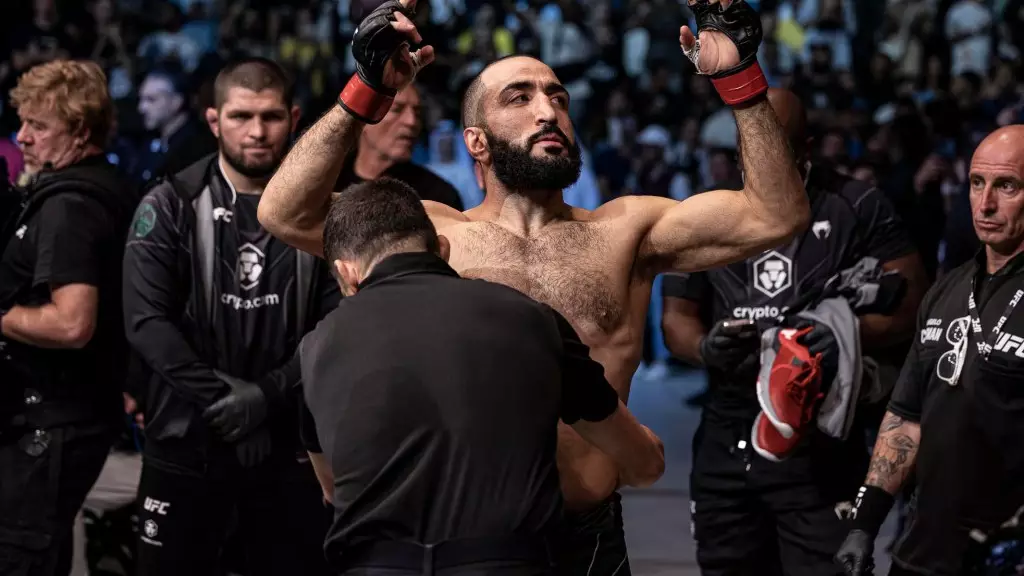In the dynamic world of mixed martial arts (MMA), the prospect of champions clashing often excites fans and analysts alike, but UFC Hall of Famer Khabib Nurmagomedov has expressed a rather thoughtful caution regarding a potential showdown between current lightweight champion Islam Makhachev and welterweight champion Belal Muhammad. Despite Makhachev’s keen ambition to ascend to welterweight in pursuit of dual-champion status, Nurmagomedov’s reluctance stems from the camaraderie and respect he holds for both fighters, having often trained alongside Muhammad during his developmental years in the sport.
Indeed, this reluctance reveals a deeper narrative in the UFC—namely the blurred lines of friendship and competition. Nurmagomedov, known as ‘The Eagle’, highlights the emotional turmoil he would face in preparing Makhachev to fight Muhammad. The tight bonds formed in training camps create a unique conflict for coaches and teammates who may ultimately have to choose sides in the octagon. Nurmagomedov’s personal integrity shines through as he admits that aiding Makhachev in that capacity would be uncomfortable for him.
Furthermore, Nurmagomedov’s analysis of Belal Muhammad sheds light on the complexities inherent in crafting a winning strategy against a fighter on a remarkable eleven-fight unbeaten streak. While Makhachev’s resilience and grappling acumen are established, Nurmagomedov intimates that Muhammad’s skills as a versatile striker—and his ability to blend wrestling with effective striking—pose significant challenges. He suggests that Makhachev would face an uphill battle when trying to maintain control over Muhammad throughout a full fight, emphasizing the unpredictability and adaptability that Muhammad exhibits within the octagon.
Notably, Nurmagomedov’s remarks extend beyond merely addressing a potential fight. They resonate with a serious consideration of the pathways and hurdles that fighters like Makhachev might face during their ascent through multiple weight classes. The complexities of honing a game plan against someone as accomplished as Muhammad, who can equally wrestle and strike, introduce a nuanced layer of planning rivaled only by the deepest rivalries in sports.
In lieu of pitting Makhachev against Muhammad, Nurmagomedov proposes an alternative that could stoke the competitive fires without crossing personal boundaries: a matchup between Belal Muhammad and former welterweight champion Kamaru Usman. Nurmagomedov’s endorsement of such a fight illustrates not only his respect for Usman’s past accolades but also suggests a keen awareness of the evolving landscape of the division. This proposed bout not only respects individual legacies but has the potential to further elevate Muhammad’s status within the UFC hierarchy.
Khabib Nurmagomedov’s insights shine a light on the internal struggles faced by fighters and coaches alike in determining the balance between competition and camaraderie. The potential for conflict between Makhachev and Muhammad opens a dialogue that invites deeper understanding of the emotional and strategic intricacies involved in MMA. While fans may crave the excitement of rivalries, figures like Nurmagomedov remind us that these athletes are also bound by friendship, respect, and the challenges of navigating a competitive yet interconnected world.

